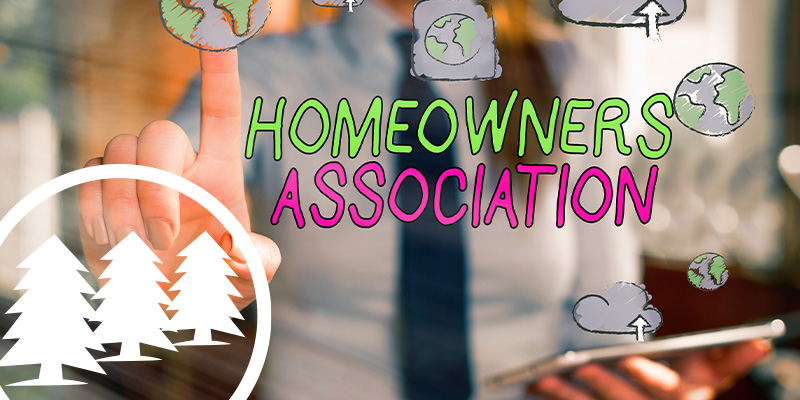Can you refuse to join a homeowners association? The answer depends on the type of association. Potential buyers should learn as much as possible about the home they wish to purchase. Similarly, board members should focus on educating current and future homeowners on the expectations and obligations that come with HOA membership.
Can You Refuse to Join a Homeowners Association?
Homeowners associations are booming in the United States. In fact, according to the Foundation for Community Association Research, there were approximately 369,000 community associations in 2024 alone. The popularity of HOAs can be attributed to the perks they offer to residents.
That said, HOA living also comes with responsibilities, and not everyone is prepared for what these are. This often leads to the question, “Can you refuse to join an HOA?” The short answer is, it depends. There are generally two types of associations in terms of membership: voluntary and mandatory.
- Voluntary Membership. As its name suggests, this type of membership is purely on an opt-in basis. This means homeowners have the choice of whether or not to join the HOA. If they don’t join the HOA, they are not obligated to pay dues or follow the community’s rules. The downside is that they also miss out on the association’s amenities and services.
- Mandatory Membership. This type of membership is compulsory. When a person buys a home in an HOA, they automatically become a member and have no choice in the matter. Membership comes with obligations, such as paying dues and following rules, but it also comes with the use of services and amenities.
It is worth noting that a vast majority of HOAs come with mandatory membership. For this reason, buyers should thoroughly investigate their prospective homes to see if there is an HOA and whether membership is optional.
Homeowner-Established Associations
The subdivision or community developer typically creates most HOAs during the initial phase of development, although some are established by homeowners later on. In the case of the latter, can you refuse to join a homeowners association?
The answer is yes. If a group of long-time homeowners suddenly decides to form an HOA, membership is not mandatory. These homeowners may ask others if they want to join, at which point, others can refuse.
Can You Refuse to Join a Condo Association?
Generally, condo associations come with mandatory membership. This means when a person buys a unit in a condo building, they automatically become a member of that association.
The reason behind this is that all unit owners in a condominium benefit from condo fees, services, and facilities. All unit owners share the use of the elevators, hallways, stairwells, lobbies, and entrances.
Opting out of membership means not paying condo fees, which would be unfair to the rest of the members who contribute to the maintenance and management of the building’s services.
Why Potential Homeowners Should Review Disclosure Documents
Before buying a home, it is crucial to sift through the disclosure documents. These records show whether the property is governed by a homeowners association. They also outline the rules, fees, and responsibilities that come with ownership. Too often, buyers overlook this step and only later realize that an HOA is in place.
Understanding these documents can help answer an important question many buyers ask: Can you be forced into an HOA?
In most cases, if the home is already part of an established association, membership is mandatory. This means the buyer will automatically become subject to its rules and fees upon closing. Ignoring the disclosures could lead to unexpected costs, restrictions on property use, and even conflicts with the association.
Knowing the details in advance will help ensure that buyers are not surprised after moving in. It allows them to make an informed decision about whether the property (and the community rules tied to it) aligns with their lifestyle and long-term plans.
Typically, buyers have a chance to back out of the sale if they feel that the HOA isn’t a good fit for them. Checking disclosure documents is not just a formality. It is one of the most important steps in protecting a buyer’s investment and peace of mind.
The Importance of Homeowner Education
Board members should take the time to educate current and future homeowners. Answering the question, “Can you refuse to join a homeowners association?” is critical to avoiding conflicts, limiting delinquencies, curbing violations, fostering resident involvement, and cultivating harmony within the community.
1. Avoid Conflicts and Misunderstandings
When homeowners understand that membership is often mandatory, they know what to expect from the start. Clear communication about responsibilities can prevent frustration and disputes. Education also reduces the likelihood of owners claiming they were unaware of dues, restrictions, or their obligations.
2. Limit Delinquencies
When boards explain how the HOA uses dues and why they are necessary, homeowners can see the value of their payments. They will also feel more motivated to pay on time and in full.
In contrast, if a homeowner wasn’t informed of their obligation to pay dues in the first place, they are more likely to miss payments either out of spite or ignorance. They must recognize that these fees fund essential services and amenities. With fewer delinquencies, the association can look forward to a healthy budget.
3. Curb Violations
Many violations occur because owners are unaware of the rules. By educating homeowners early, the board can ensure they understand what is expected. This decreases violations related to property maintenance, parking, or noise. Additionally, it can save time spent on enforcement.
4. Foster a Willingness to Participate
Educated homeowners often feel more connected to the community. When they understand the board’s role and their own responsibilities, they are more willing to attend meetings and volunteer. Participation strengthens the association and builds trust between the board and residents.
5. Cultivate Harmony
A community will thrive when residents understand and respect the same set of rules. Education promotes transparency, which fosters fairness and reduces resentment. Homeowners who understand the association’s structure are more likely to collaborate toward a harmonious neighborhood.
Options for Owners Who Inherit a Home in an HOA Community
Sometimes, homeowners become homeowners unintentionally. They might inherit a property in an HOA community or a unit in a condominium. When this happens, they also inherit the obligation to pay dues and follow rules. Since they are now homeowner, they also become members of the association.
Of course, this doesn’t mean that they’re stuck with it. If a person inherits a home and HOA membership along with it, they have the following options:
Reside in the Community
Some people inherit a home in an HOA. In this case, do you have to join a homeowners association? If the inheritor decides to use the home and reside in the community, then yes, they must join the association.
Joining an HOA means fulfilling specific responsibilities. These responsibilities include paying dues and assessments, adhering to the community’s rules, and maintaining their property. That said, membership also comes with privileges, such as access to amenities, services, social events, and voting rights.
Rent Out the Home
If you rent out the home you inherited, do you have to join an HOA? Retaining ownership of the home, even for the purpose of renting it out, still comes with HOA membership. This means the owner must still pay dues and follow the rules.
Most homeowner-landlords include the HOA fees as part of the rent to offset the cost. Tenants are also subject to the community’s rules, even if they are not actual members of the community. If a tenant violates a rule, the homeowner will usually receive a violation notice and, after an opportunity to be heard, a penalty.
Sell the Home
Can you refuse to join a homeowners association? If inheritors don’t wish to join the HOA, they can sell the home. Selling the house is essentially the only way to exit the membership, but it also means transferring the membership to the buyer. Sellers must disclose the existence of the HOA and provide resale packages as part of the closing process.
Can You Refuse to Join a Homeowners Association? Answered!
Membership in an HOA is often mandatory, but homeowners must understand that these associations exist for a reason. They offer plenty of benefits, including access to amenities and services, as well as higher property values. Board members must take the initiative to educate current and future homeowners on the importance of HOA membership.
Cedar Management Group provides effective management services to HOAs and condo associations. Call us today at (877) 252-3327 or email us at help@mycmg.com to get started!
RELATED ARTICLES:
- Moving Out Of The HOA? Here’s What Homeowners Should Do
- HOA Rental Restrictions: How Far Can Regulations Go?
- Want To Join The HOA Board? Here’s How






